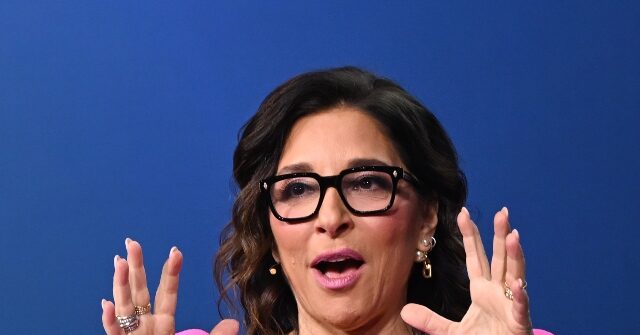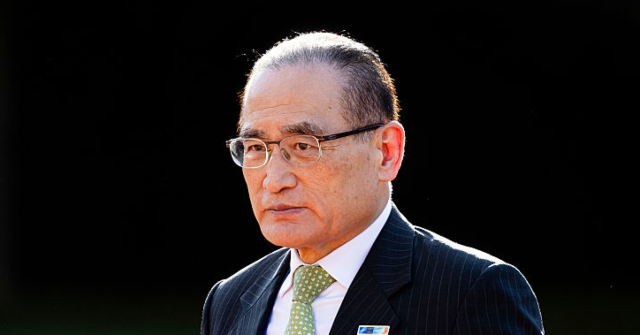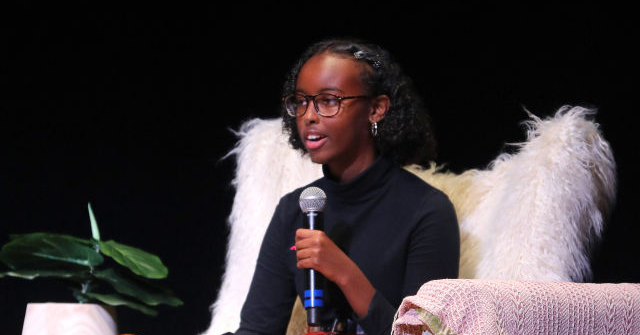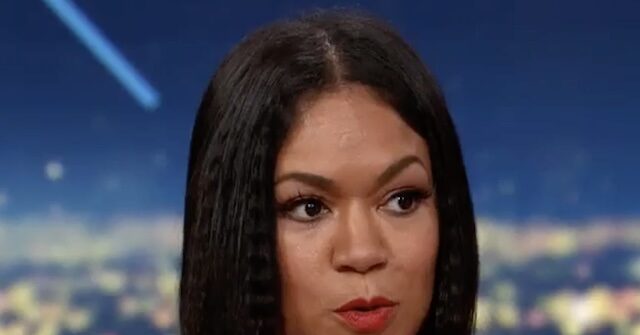 Mon Coeur founder Louise Ulukaya, center, combines French elegance with environmental pragmatism. Mon Coeur
Mon Coeur founder Louise Ulukaya, center, combines French elegance with environmental pragmatism. Mon CoeurLouise Ulukaya’s sustainable children’s clothing brand isn’t a gauzy ode to eco-utopia. “I wouldn’t put clothing made with child labor on my children,” Ulukaya tells Observer. It’s a line that sounds obvious, even virtuous, until you realize how rarely that sentiment troubles the trillion-dollar garment industry—and how little Ulukaya is willing to compromise. When she became pregnant with her first child in 2018, Ulukaya tore into the global fashion supply chain, learning everything she could about fast fashion, material fabrication and the staggering waste of the garment industry, especially in children’s clothing.
The numbers are grim: over 3.15 billion kids’ garments are discarded globally each year. In the U.S., 70 percent of that waste heads straight to landfills, contributing to the nine million tons of apparel tossed annually. Nearly all clothing sold in the U.S. is imported, and the Department of Labor has identified 51 countries where child labor persists in garment production. In Africa, close to 20 percent of children are engaged in labor. In China, nearly 8 percent. The consequences are brutal: malnutrition, exposure to toxic chemicals, blindness, paralysis—even death.
It doesn’t stop there. A 2021 study found that nearly two-thirds of children’s clothing tested positive for forever chemicals—substances that remain in the environment for millennia and are linked to cancer, developmental delays and organ damage. Apparel manufacturing is responsible for nearly 10 percent of global carbon emissions, one-fifth of all industrial water pollution, and 35 percent of the microplastics in the ocean. Fast fashion production has more than doubled since 2000, and the children’s sector is outpacing it, projected to hit $300 billion by 2030. Over 150 million children worldwide, some as young as five years old, are involved in child labor—many through force, and more than half in hazardous conditions tied to garment production.
“It clicked right then: how wrong it is to put a child in clothing that is made by a child, probably through forced labor,” Ulukaya says. “How could we make things better?”
Mon Coeur (“my heart”) launched three years later, in 2021, with a circular, transparent ethos and a distinctly Mediterranean aesthetic inspired by her childhood in the South of France. There are no overloaded patterns, cartoon characters, sequins or slogans. It is not twee and it is not, blessedly, ironic. The clothes are bright, buoyant and engineered to outperform their fast-fashion cousins.
“The prints won’t move,” she says of the sun-drenched popsicle reds, lemon yellows and pool blues anchored in clean silhouettes. “You can wash the clothes hundreds and hundreds of times.” Every piece is made from recycled or organic materials and built for years of wear, wash and hand-me-downs. About 60 percent of Mon Coeur’s styles are gender neutral for practicality, and the company’s website, which speaks to a vision of childhood rooted in respect for the planet, offers tips on how to launder and care for clothing to make it last.
Buttons are made of recycled paper. Zippers are almost entirely made from post-consumer recycled yarns and upcycled plastic bottles. Swimwear is stitched from old fishing nets, and all of Mon Coeur’s fabrics are certified by the Global Recycled Standard (GRS), which verifies both the presence and volume of recycled material in a product and ensures responsible social, environmental and chemical practices throughout the supply chain.
“Many companies throw scraps away,” Ulukaya says of the leftover fabric that falls to lesser factory floors. “But we collect them, almost shrink them into dust and mix them with recycled elastane or rPET from plastic bottles to make our yarns.” Ulukaya donates at least one percent of Mon Coeur’s annual revenue to environmental causes via 1% for the Planet, and maintains longstanding support of the 5 Gyres Institute, a leader in the zero-waste movement and promoting circular economies.
“We produce 100 percent in Portugal,” she explains. “We used to get our yarn from France and our recycled fishing nets from Spain, but now, to lower carbon emissions, we’ve centralized everything.” What she’s building is grounded in an almost militant commitment to the belief that children’s clothes can be playful and principled. The same values inform her partnerships.
Mon Coeur’s latest—a three-piece collaboration with the Billion Oyster Project, a nonprofit working to restore New York Harbor’s oyster reefs—launched in May. The limited-edition capsule features blue and white shell prints across summer-weight tees, sweatshirts and SPF swimwear. Fifteen percent of proceeds go directly to oyster reef restoration.
“Oysters are basically trees in the forest,” Ulukaya says. “They clean the water. They support the whole ecosystem.” The Billion Oyster Project, she says, is already making an impact: “We saw seahorses in the harbor for the first time in 100 years.” Mon Coeur’s collaboration with the Billion Oyster Project grew from Ulukaya’s grassroots efforts: volunteering, organizing beach cleanups, leading sustainability events and engaging local schools and families. True to her mission, it was Ulukaya who initiated the partnership. “Sometimes people say, ‘Oh, but it won’t really do anything for the environment,’” she recounts. “But if everybody does a little bit, is a little more aware, and is more careful and conscious, that small effort will make an impact.”
You can tell she was raised to respect precision. Her father is Jean-Georges Vongerichten, the playful yet notoriously exacting French-American chef with a global fleet of fine dining restaurants, hotel concepts and Michelin stars. In the late 80s, about a decade before his first solo venture, Vongerichten staged a Dalí-inspired dinner at Lafayette, where he hung dead pigeons from a dead tree in the middle of the restaurant and served pork belly and gelatin breasts with carrots for nipples—a dish he dubbed The Breast of Venus. In a past interview with Observer the chef described himself as a rooster (happy with his feet in shit!). Unfiltered and theatrical, yes—but more than anything, Vongerichten is known for working 14-hour days, evangelizing the importance of commitment to one’s craft, and showing no signs of slowing down after fifty-plus years in the kitchen.
“My father is, by far, the hardest-working, most disciplined person I know,” Ulukaya says. “Nothing comes easy.” She learned effort and persistence from him, she says. But where her father is effusive and tangential, speaking in bursts peppered with charm and sudden exclamations, Ulukaya is a systems thinker, level and steady. This is the problem, here’s what we’re doing about it. Her tone doesn’t flatten into outrage even when talking about waste or injustice. There’s resolve in the way she articulates quality, and a kind of maternal pragmatism in how she breaks down her process; she’s letting you in on something sensible and straightforward.
“My goal was always to make sustainable clothing available for all children,” she says. “That is my mission: to democratize sustainability.” At launch, prices were high and margins were, in her words, “not really healthy.” She knew $60 T-shirts wouldn’t scale. So she went after volume, not compromise. Wholesale followed; over 200 stockists now carry the brand across the U.S., Canada, Europe and Asia. At Maisonette, the Vogue-alum boutique for fashion-literate parents, Mon Coeur slots in with ease.
Ulukaya’s long, chestnut hair is softly waved and neatly parted. Her posture is relaxed, her expression open. A gentle French lilt in her voice is softened by years in New York (Ulukaya was born here, moved to France at two, and returned as a young adult). She listens as much as she speaks and doesn’t break eye contact. She’s fluent in both the poetry and the math of her business, but there’s an earthiness to her, too—a tranquility that feels more oceanic than urban. Which makes sense, once you learn the sea is her north star.
Ulukaya designs everything herself in New York, in a studio pinned with sketches of shells, boats and seaside botanicals. Her prints look like memories. “I do most of the actual drawings,” she says. “I’ve always loved design.”
It’s no surprise that a genuinely sustainable, well-made, reasonably priced brand has gained a following among millennial coastal moms. Wholesale was dominant until last year, when a series of targeted ads featuring children in motion, jumping into pools, slurping lemonade, streaked with sun and play, drove direct-to-consumer revenue to nearly 80 percent of total sales. Profit margins grew, but more importantly, the campaign resonated with mothers with opinions about plastic waste, who want their kids to look charming but not overdone, and their values to be visible in their clothes. That window—when parents still decide what their children wear—is Mon Coeur’s sweet spot, she says. “That is our main market.”
Not for long. An unnamed mass-market brand recently approached Mon Coeur for a collaboration. “They are absolutely not sustainable,” Ulukaya declares, bluntly. “That’s why they came to us.” She said yes.
The partnership offers an opportunity to do something radical at scale. If the average parent can buy a Mon Coeur-designed tee, made in Portugal, for the same price they’d pay at a fast-fashion chain, why wouldn’t they? “It would allow their brand to have a better, bigger impact, and for Mon Coeur’s impact on sustainability to grow faster,” Ulukaya explains.
Even so, the lift is immense. “All the ink we use is vegetable ink!” she interjects, mid-thought, before returning to the scale of operational overhaul. The cultural and financial shift toward sustainability is daunting for any company, let alone one that’s been around for thirty or more years, beholden to shareholders, investors, board members, thousands of suppliers and hundreds of thousands of employees. “Change like that requires so much investment, knowledge and training. It is complicated,” Ulukaya sighs. “I don’t like blaming companies that are not doing things the right way, when they’re so big, because it’s so hard.”
Her background—in hospitality, in operations, in growing up inside her father’s empire—is foundational. Ulukaya grew up watching a father build empires out of intuition. Her strategy is less about instinct and more about infrastructure. Before launching Mon Coeur, Ulukaya studied business at American University’s Kogod School, graduating cum laude with a focus in marketing and a side life as a ballet dancer—eighteen years en pointe, which tells you nearly everything you need to know about her tolerance for pain. Ballet, in her words, “literally and metaphorically taught me balance.”
After undergrad, she pursued an MBA split between ESSEC Business School in Paris and The Hong Kong Polytechnic University, deepening her expertise in hospitality management. That led her into senior roles at Starwood Hotels in the Middle East, then to Chefs Club in New York, and eventually to founding Food Dreams, a Jean-Georges Foundation nonprofit to bridge the gap between culinary students and the working world. What she learned from those years—managing hotel teams in the Gulf, restaurant staff in New York, founding a culinary nonprofit—was how to endure.
She once felt every challenge like a boulder to the chest. “Back then, it was hard to stand back up,” she says. Resilience is now her default mode.
Fashion and hospitality are both industries of surface that demand brutal consistency. You don’t dance for nearly two decades without learning to take criticism, push through failure and find joy in repetition. You don’t launch a sustainable clothing company in the teeth of fast fashion without that same discipline.
“The hospitality industry made me very strong. What I learned wasn’t how to manage the challenge itself, but to take each challenge as an opportunity to change. Whether in the restaurant industry or fashion, the challenges are the same at the end of the day. The challenges are in everything we do,” she says.
It is a mindset that extends to how she hires and leads. The team behind Mon Coeur is small—a dozen women split between Portugal and New York. “It’s not that we don’t welcome men,” she says. “But I’m proud of it. It’s hard for women in business. When we can help each other out, we should.”
Maybe it wasn’t by design, she admits. But the result—a tight, international network of women solving supply chain puzzles and managing growth across time zones—is one she doesn’t take for granted. The trait she screens for most aggressively? “Kindness,” she says. “Skills can be learned. Kindness can’t.”
Ulukaya doesn’t see Mon Coeur as a moral crusade, but the logical outcome of asking a single, unfussy question: What if no one had to get hurt to get dressed? “The most beautiful thing about children is that they should be kids.” The rest—fabrics, factories, fishing nets—is how you get there.












 English (US) ·
English (US) ·  French (CA) ·
French (CA) ·  French (FR) ·
French (FR) ·